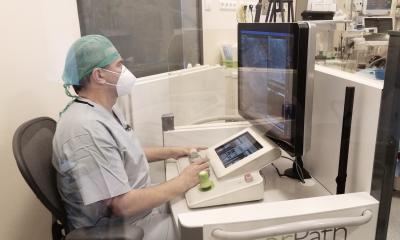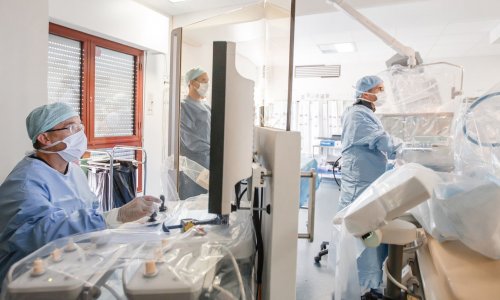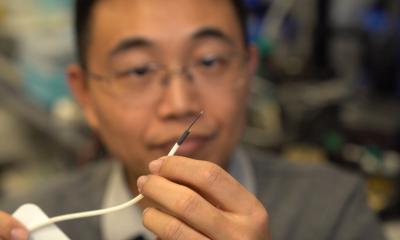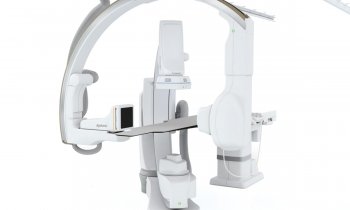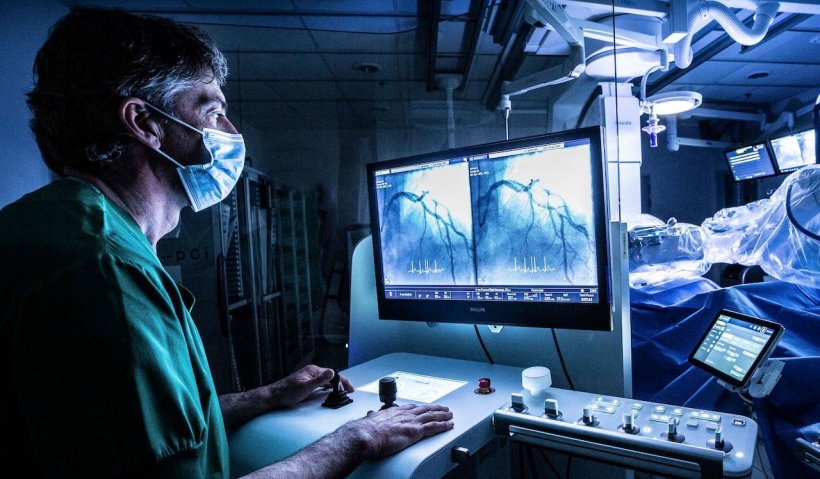
Image source: Robocath
News • Intervention premiere
First robotic PCI performed in Belgium
Medical robotics company Robocath announces the successful completion of first five robotic coronary angioplasties in Belgium.
The Percutaneous Coronary Interventions (PCI) were performed on April 8 and 13 by Prof. Stefan Verheye, a recognized and highly experienced interventional cardiologist at ZNA Middelheim hospital in Antwerp, and his team. Robotic-assisted PCI has never been done before in this country.
I was immediately very impressed by the ease of use of the platform and its level of precision. The robotic arm places the stent even more precisely than with the manual technique, down to a fraction of a millimeter
Stefan Verheye
R-One is a robotic platform that assists interventional cardiologists in performing coronary angioplasties. This procedure consists of revascularizing the cardiac muscle, by inserting one or more implants (stents) into the arteries that supply it with blood. The platform is the first solution developed by Robocath. This robotic platform is designed to operate with precision and perform specific movements to facilitate and enhance the interventional procedures performed on the patient. It also offers a better working environment for physicians and the entire medical team, with a drastic reduction in X-ray exposure. These first five robotic procedures are part of a clinical study which involves six European centres. The study aims to demonstrate the many benefits for interventional cardiologists of robotic use within daily practice.
Prof. Stefan Verheye, Interventional Cardiologist at ZNA Middelheim, Antwerp, member of the European Association of Percutaneous Cardiovascular Interventions (EAPCI) and author of over 170 peer-reviewed papers (mainly investigating new approaches and innovative technologies), said: “I’m honored to be the first user in Belgium of this French vascular robotic solution. I was immediately very impressed by the ease of use of the platform and its level of precision. The robotic arm places the stent even more precisely than with the manual technique, down to a fraction of a millimeter. In addition, it allows us to work in a much safer and more comfortable setting because we are no longer directly in contact with harmful X-rays - which is of great concern to all physicians in this field. It also means that we no longer need to wear our lead apron which can often cause orthopedics injuries. Therefore, I performed five clinical robotic procedures in a comfortably seated position, without any X-ray exposure. This robotic solution is a first step toward a global revolution in interventional cardiology. I have absolutely no doubt that this solution will be widely taken up. I’m delighted to be among the pioneers of this new technological wave in Europe.”
Source: Robocath
04.05.2021



